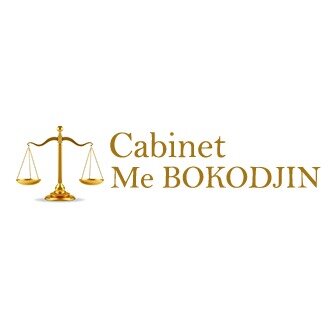Best Creditor Lawyers in Togo
Share your needs with us, get contacted by law firms.
Free. Takes 2 min.
Or refine your search by selecting a city:
List of the best lawyers in Togo
About Creditor Law in Togo
Creditor law in Togo pertains to the rights and obligations of individuals or businesses who are owed money by debtors. This area of law governs the legal processes and remedies available to creditors to recover debts owed to them.
Why You May Need a Lawyer
You may need a lawyer specializing in creditor law if you are facing difficulties in collecting a debt, need to negotiate payment terms with a debtor, or require legal representation in court proceedings related to debt collection.
Local Laws Overview
In Togo, creditor rights and remedies are primarily governed by the Civil Code, the Commercial Code, and other relevant statutes. Creditors have legal options available to them to enforce the collection of debts, such as seizure of assets or initiating legal proceedings.
Frequently Asked Questions
1. How can I recover a debt from a debtor in Togo?
To recover a debt from a debtor in Togo, you may need to seek legal assistance to explore the available options, such as negotiating a payment plan, filing a lawsuit, or obtaining a court judgment to enforce payment.
2. Can a creditor seize a debtor's assets in Togo?
Yes, creditors in Togo have the legal right to seize a debtor's assets as a means of recovering a debt owed to them. However, there are specific legal procedures that must be followed to execute asset seizure.
3. Is there a statute of limitations on debt collection in Togo?
Yes, Togo's Civil Code imposes a statute of limitations on debt collection, which varies depending on the type of debt. It is essential to be aware of these limitations to ensure timely enforcement of debt collection.
4. What are the consequences for a debtor who fails to repay a debt in Togo?
If a debtor fails to repay a debt in Togo, they may face legal consequences such as asset seizure, court-ordered payment obligations, or damage to their credit score. It is important for debtors to fulfill their financial obligations to avoid such consequences.
5. Can a creditor pursue legal action against a debtor who refuses to pay in Togo?
Yes, creditors in Togo have the legal right to pursue legal action against debtors who refuse to pay their debts. This may involve filing a lawsuit, obtaining a court judgment, or enforcing other legal remedies available under creditor law.
6. Are there alternative dispute resolution methods available for creditor disputes in Togo?
Yes, alternative dispute resolution methods such as mediation or arbitration can be utilized to resolve creditor disputes in Togo outside of traditional court proceedings. These methods can offer a cost-effective and efficient way to settle creditor disputes.
7. How can a lawyer help me in creditor issues in Togo?
A lawyer specializing in creditor law in Togo can provide valuable legal advice, representation in court proceedings, negotiation assistance, and guidance on the best course of action to recover debts owed to you.
8. What are the legal requirements for debt collection practices in Togo?
Debt collection practices in Togo are regulated by laws that prohibit abusive, harassing, or deceptive practices by creditors. It is essential to adhere to these legal requirements when pursuing debt collection to avoid legal consequences.
9. Can a creditor negotiate payment terms with a debtor in Togo?
Yes, creditors in Togo can negotiate payment terms with debtors to establish a mutually agreeable plan for debt repayment. It is advisable to seek legal guidance to ensure the negotiations are conducted in compliance with the law.
10. What rights do creditors have under Togo's creditor laws?
Under Togo's creditor laws, creditors have the right to enforce debt collection through legal means, such as seizing assets, filing lawsuits, obtaining court judgments, and exercising other remedies available under the law to recover debts owed to them.
Additional Resources
For more information on creditor laws and legal resources in Togo, you may consider contacting the Togolese Bar Association or consulting legal professionals specializing in creditor law.
Next Steps
If you require legal assistance in creditor matters in Togo, it is advisable to consult with a qualified lawyer experienced in creditor law to assess your case, discuss legal options, and guide you through the necessary steps to protect your rights and recover debts owed to you.
Lawzana helps you find the best lawyers and law firms in Togo through a curated and pre-screened list of qualified legal professionals. Our platform offers rankings and detailed profiles of attorneys and law firms, allowing you to compare based on practice areas, including Creditor, experience, and client feedback.
Each profile includes a description of the firm's areas of practice, client reviews, team members and partners, year of establishment, spoken languages, office locations, contact information, social media presence, and any published articles or resources. Most firms on our platform speak English and are experienced in both local and international legal matters.
Get a quote from top-rated law firms in Togo — quickly, securely, and without unnecessary hassle.
Disclaimer:
The information provided on this page is for general informational purposes only and does not constitute legal advice. While we strive to ensure the accuracy and relevance of the content, legal information may change over time, and interpretations of the law can vary. You should always consult with a qualified legal professional for advice specific to your situation.
We disclaim all liability for actions taken or not taken based on the content of this page. If you believe any information is incorrect or outdated, please contact us, and we will review and update it where appropriate.
Browse creditor law firms by city in Togo
Refine your search by selecting a city.










